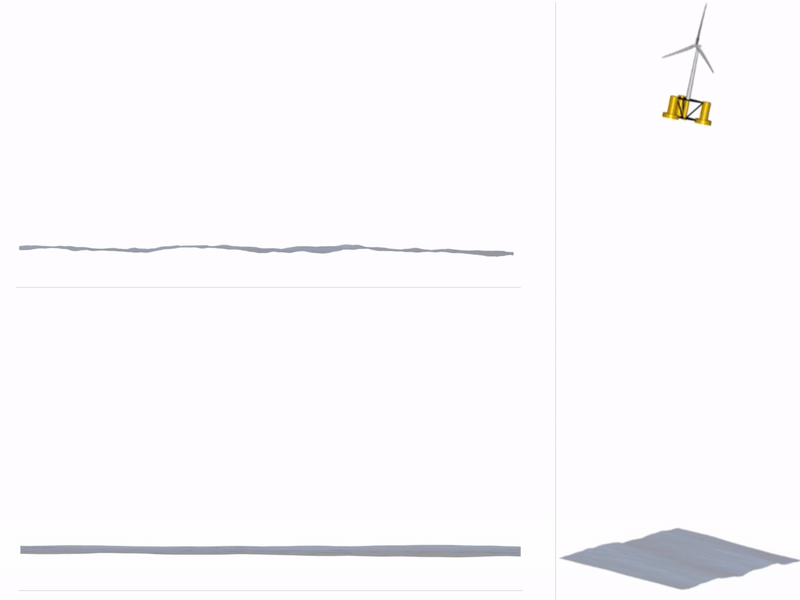Forum
Important Notice for New User Registrations
To combat an increasing number of spam and bot registrations, we now manually approve all new user registrations. While this may cause a delay until your account is approved, this step is essential to ensure the quality and security of this forum.
To help us verify your registration as legitimate, please use a clear name as user name or an official email address (such as a work, university, or similar address). If you’re concerned that we may not recognize your registration as non-spam, feel free to email us at with a request to approve your username.
propeller's direction of rotation
Quote from mozha on 31. July 2023, 10:09Hello,David
I have two questions:
Firstly,I’d like to how can i know and change the direction of rotation of propller,clockwise or anticlockwise.
Secondly,the module turbine definition and simulation are not useful for prop performance,the analysis of prop is finished in module propeller BEM analysis,am i right?
Hello,David
I have two questions:
Firstly,I’d like to how can i know and change the direction of rotation of propller,clockwise or anticlockwise.
Secondly,the module turbine definition and simulation are not useful for prop performance,the analysis of prop is finished in module propeller BEM analysis,am i right?
Uploaded files:- You need to login to have access to uploads.
Quote from David on 31. July 2023, 12:22Hi monzha,
in the propellor design module, the propeller’s direction of rotation cannot be changed. However, it’s assumed that the propeller’s performance remains equivalent for both directions of rotation.
Regarding the propeller analysis only the steady state BEM modes have the specific prop variables included (and the BEM is slightly modified to work well with the prop operationg states). Nevertheless, you can also use a prop geometry in a time domain analysis.
For time domain propeller analysis, it is recommended to use the LLFVW (Lifting Line Free Vortex Wake) aerodynamic model as the polar BEM is not well-suited for propellers. Analyzing the results, converting variables from “wind turbine” space to “propeller” space, such as Tip Speed Ratio (TSR) vs. Advance Ratio, can be done straightforwardly.
In the turbine design module, when configuring a propeller model for time domain analysis, it is even possible to change the direction of rotation. In such a case, the propeller geometry is automatically converted by inverting it along the y-axis direction in the propeller design module.
BR,
David
Hi monzha,
in the propellor design module, the propeller’s direction of rotation cannot be changed. However, it’s assumed that the propeller’s performance remains equivalent for both directions of rotation.
Regarding the propeller analysis only the steady state BEM modes have the specific prop variables included (and the BEM is slightly modified to work well with the prop operationg states). Nevertheless, you can also use a prop geometry in a time domain analysis.
For time domain propeller analysis, it is recommended to use the LLFVW (Lifting Line Free Vortex Wake) aerodynamic model as the polar BEM is not well-suited for propellers. Analyzing the results, converting variables from “wind turbine” space to “propeller” space, such as Tip Speed Ratio (TSR) vs. Advance Ratio, can be done straightforwardly.
In the turbine design module, when configuring a propeller model for time domain analysis, it is even possible to change the direction of rotation. In such a case, the propeller geometry is automatically converted by inverting it along the y-axis direction in the propeller design module.
BR,
David
Quote from mozha on 31. July 2023, 17:15Hi,David
I follow your suggestions ,iuse the free vortex wake and set the rpm=2000,but the result is not good.
Why the thrust and power are negative,are they relative to cordinate system?
Hi,David
I follow your suggestions ,iuse the free vortex wake and set the rpm=2000,but the result is not good.
Why the thrust and power are negative,are they relative to cordinate system?
Uploaded files:- You need to login to have access to uploads.
Quote from David on 31. July 2023, 18:13Hi mozha,
negative power in “wind turbine terms” means that power is needed to spin the propeller. Likewise, a negative thrust means that the propeller is experiencing a force in the upwind direction. This is what I meant by converting variables from the “wind turbine” space to the “propeller” space.
Regarding the settings, I noticed that the timestep of the simulation is set to an azimuthal increment of approximately 30°. To improve the accuracy of the results, I would recommend reducing this by a factor of at least 3, resulting in an azimuthal increment of 10°. This adjustment will help mitigate the distorted wake and its impact on the results. Additionally, conducting sensitivity tests with respect to the vortex core settings is crucial for propellers, as the wake always remains in close proximity to the rotor.
BR,
David
BR,
David
Hi mozha,
negative power in “wind turbine terms” means that power is needed to spin the propeller. Likewise, a negative thrust means that the propeller is experiencing a force in the upwind direction. This is what I meant by converting variables from the “wind turbine” space to the “propeller” space.
Regarding the settings, I noticed that the timestep of the simulation is set to an azimuthal increment of approximately 30°. To improve the accuracy of the results, I would recommend reducing this by a factor of at least 3, resulting in an azimuthal increment of 10°. This adjustment will help mitigate the distorted wake and its impact on the results. Additionally, conducting sensitivity tests with respect to the vortex core settings is crucial for propellers, as the wake always remains in close proximity to the rotor.
BR,
David
BR,
David


